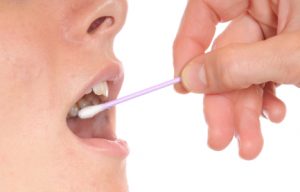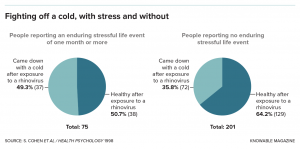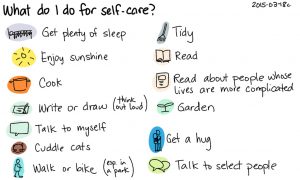
Image Credit:
https://thedoctorweighsin.com/opioid-addiction-cancer-of-our-generation/
You’ve probably heard the news, or seen posts online about the opioid crisis affecting Canada. British Columbia (B.C.) is the hardest hit province with the death rate of 1, 399 people in 2017 according to CBC news, which is 974 more people than 2016, who have died because of the opioid crisis. If this nasty phenomenon is happening and almost all of the public is aware about it, including drug users, then what causes them to continue to put their life at risk and inject, snort, and ingest the drug into their body knowing the possibility they may die in the upcoming couple of hours?

According to the U.S. National Library of Medicine, opioid addiction is a chronic long-lasting condition that is characterized by a powerful and compulsive urge to use an opioid drug. Without the use of the drug the abuser will feel muscle pain, anxiety, diarrhea, and cramping. These symptoms are so extreme that they will force the user to obtain the drug because without it, life will be miserable. Therefore, the abuser has no option but to ingest the drug in order to feel “normal”.

Image Credit: https://www.yahoo.com/news/this-is-your-brain-on-opioids-194212388.html
Thomas R. Kosten and Tony P. George explain that 0pioids travel in the bloodstream and as soon as they enter the body they attach to little proteins in the blood called mu. We can imagine mu to be small magnets floating in our blood; once the drug attaches to mu it becomes activated triggering our brain to produce feelings of pleasure. Most often we get these same feelings of pleasure through normal day-to-day activities such as eating and sex. There is a portion of our brain that remembers the pleasurable feelings and associates them with the circumstances and the environment that we experienced them. These memories are called conditioned associations, when we experience the same conditions such as re-encountering the same people, places, or things we want the drug to make up the missing puzzle piece.
Opioid withdrawal occurs because gradually overtime opioid receptors such as mu stop responding to smaller concentrations of natural hormones. There is an area of the brain called locus ceruleus (LC). The LC controls the normal day-to-day functions such as breathing, blood pressure, and wakefulness. When the opioid drug attaches to mu, it causes the LC to stop working, which results in low blood pressure, drowsiness, and slowed respiration. However, the LC is smart! It responds by increasing its power and returning the person to a normal state by fixing all the factors mentioned above. Therefore, when opioids are present the person feels normal however when opioids are not present, the LC is still working at its strongest power and the opioid-mu complex is not available to counteract it. This causes jitters, anxiety, muscle cramps, and diarrhea – which are the symptoms of withdrawal.
Therefore opioid addiction is understood as a medical disorder, similar to heart disease, diabetes, or mental illnesses. Next time you read about the opioid crisis in B.C. never assume that people can easily stop taking their drug. They need medical help in order to stop, and until the individuals suffering don’t get the help they need they will be living in danger.
Jasleen Jassal






